AMD EPYC 7502P Benchmarks
For this exercise, we are using our legacy Linux-Bench scripts which help us see cross-platform “least common denominator” results we have been using for years as well as several results from our updated Linux-Bench2 scripts. Starting with our 2nd Generation Intel Xeon Scalable benchmarks, we are adding a number of our workload testing features to the mix as the next evolution of our platform.
At this point, our benchmarking sessions take days to run and we are generating well over a thousand data points. We are also running workloads for software companies that want to see how their software works on the latest hardware. As a result, this is a small sample of the data we are collecting and can share publicly. Our position is always that we are happy to provide some free data but we also have services to let companies run their own workloads in our lab, such as with our DemoEval service. What we do provide is an extremely controlled environment where we know every step is exactly the same and each run is done in a real-world data center, not a test bench.
We are going to show off a few results, and highlight a number of interesting data points in this article.
Python Linux 4.4.2 Kernel Compile Benchmark
This is one of the most requested benchmarks for STH over the past few years. The task was simple, we have a standard configuration file, the Linux 4.4.2 kernel from kernel.org, and make the standard auto-generated configuration utilizing every thread in the system. We are expressing results in terms of compiles per hour to make the results easier to read:
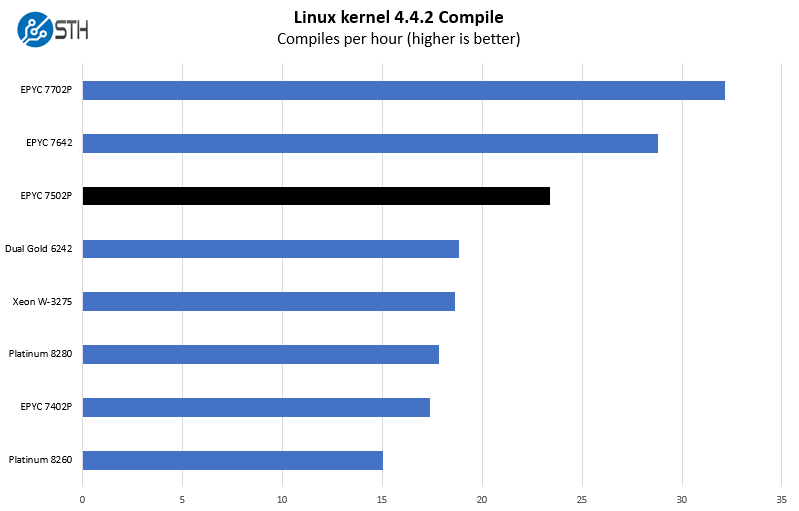
The performance here is great. A single-chip AMD EPYC 7502P solution is completing our compile test faster than 32x high-speed Intel Xeon Gold 6242 cores. This is all around 1/2 the price for just the CPUs which is even more impressive.
c-ray 1.1 Performance
We have been using c-ray for our performance testing for years now. It is a ray tracing benchmark that is extremely popular to show differences in processors under multi-threaded workloads. We are going to use our 8K results which work well at this end of the performance spectrum.
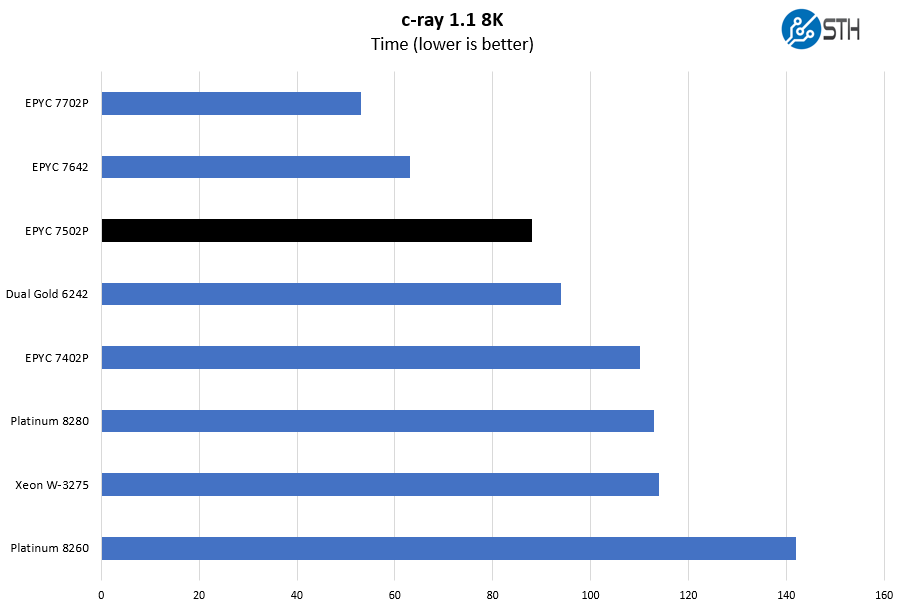
We are going to call this one out early. The AMD EPYC 7502P is not the fastest EPYC of this generation. Indeed, as a 32 core model, it has only half of the top-end AMD EPYC 7702P / EPYC 7742’s 64 cores. There is also a higher wattage 48 core line including the AMD EPYC 7642 we have in these charts. Moving to 48 or 64 cores will almost double your CPU costs in a server, but if you have a lot invested in the platform’s memory and I/O devices that may make sense.
7-zip Compression Performance
7-zip is a widely used compression/ decompression program that works cross-platform. We started using the program during our early days with Windows testing. It is now part of Linux-Bench.
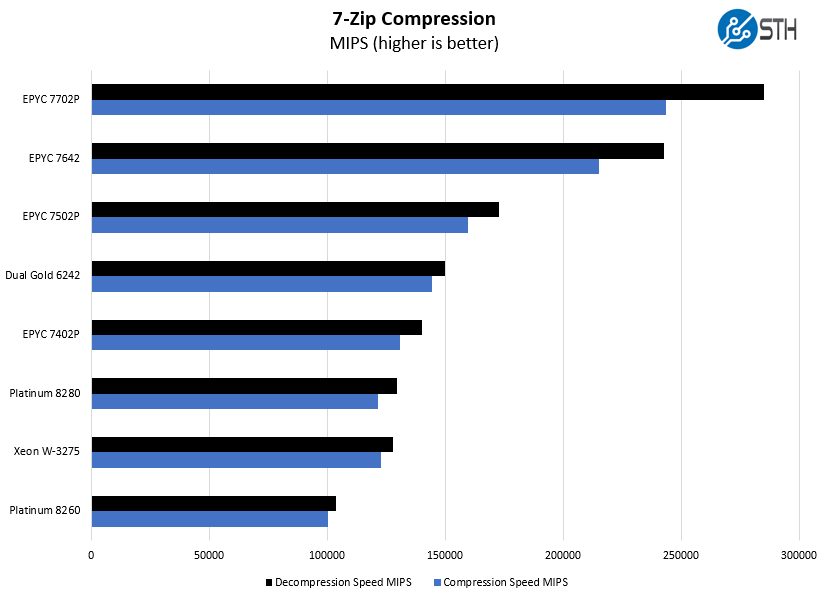
With 32 cores and massive caches, the AMD EPYC 7502P performs well compared to the 28-core Intel Xeon W-3275 halo single-socket product that Intel has. AMD is running at lower clock speeds, but it also has more cores and big caches which compensate for the clock delta.
NAMD Performance
NAMD is a molecular modeling benchmark developed by the Theoretical and Computational Biophysics Group in the Beckman Institute for Advanced Science and Technology at the University of Illinois at Urbana-Champaign. More information on the benchmark can be found here. With GROMACS we have been working hard to support AVX-512 and AVX2 supporting AMD Zen architecture. Here are the comparison results for the legacy data set:
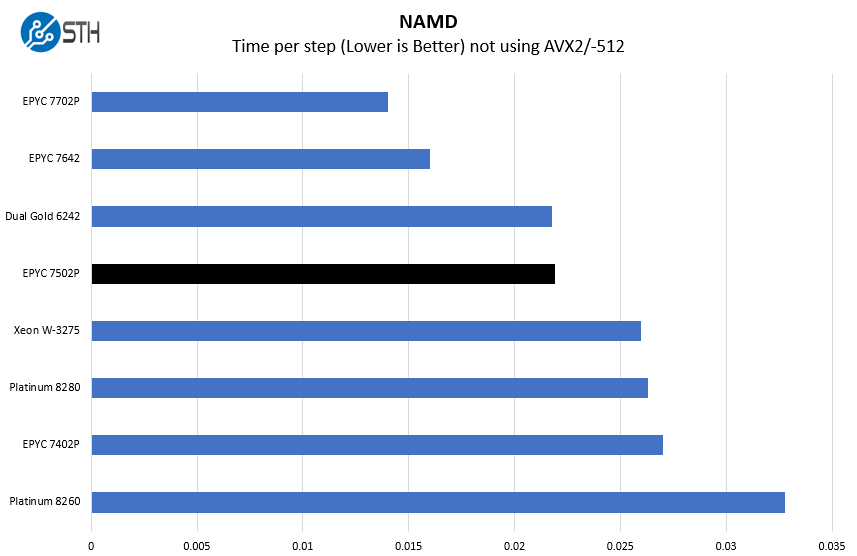
This is an unoptimized NAMD test, but we have it for a specific purpose: to see scaling on older applications that are not re-compiled for the latest processor extensions. Here, the dual Intel Xeon Gold 6242 configuration narrowly beats the single AMD EPYC 7502P.
OpenSSL Performance
OpenSSL is widely used to secure communications between servers. This is an important protocol in many server stacks. We first look at our sign tests:
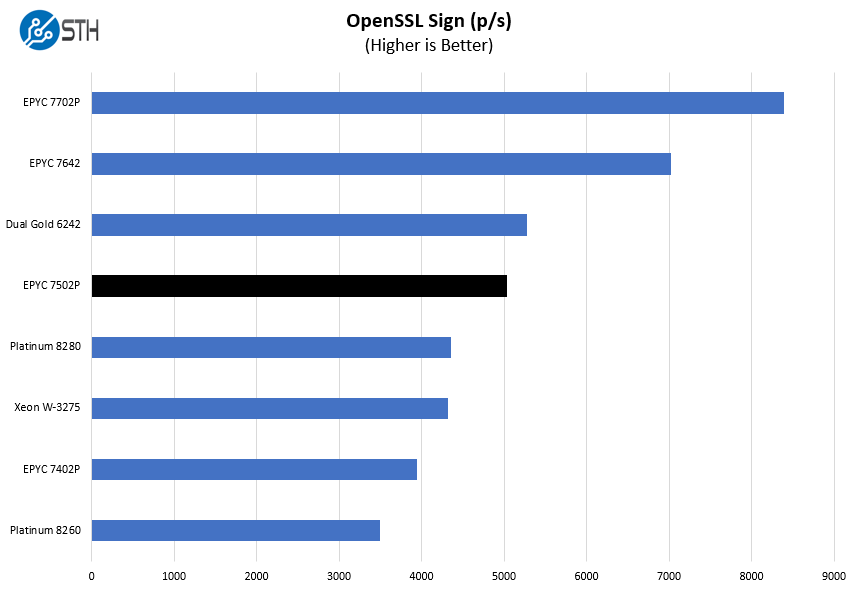
Here are the verify results:
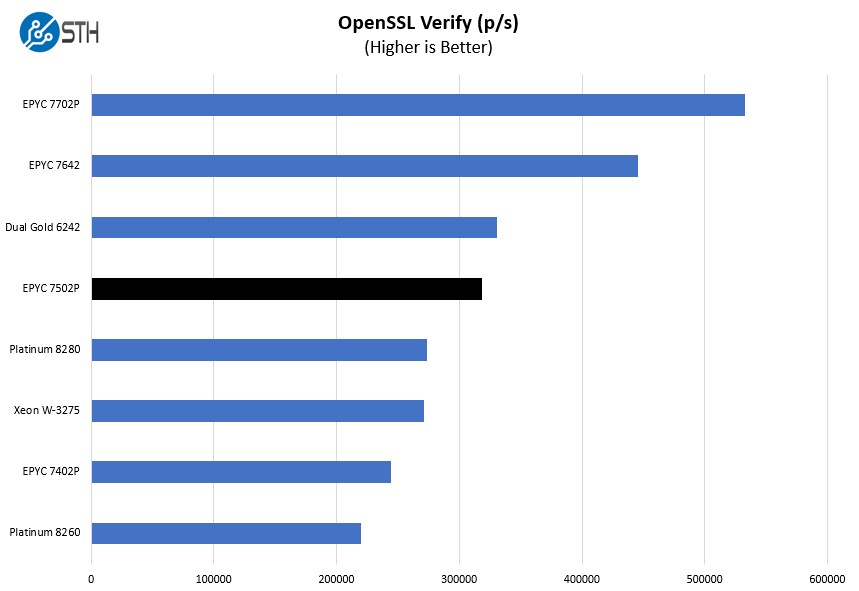
Our OpenSSL testing finds the AMD EPYC 7502P between the dual Intel Xeon Gold 6242 and the Intel Xeon Platinum 8280. Intel now needs massive discounts to this $10,009 part to keep it competitive against a $2300 AMD part, and that is before getting to M and L SKUs for additional memory capacity.
UnixBench Dhrystone 2 and Whetstone Benchmarks
Some of the longest-running tests at STH are the venerable UnixBench 5.1.3 Dhrystone 2 and Whetstone results. They are certainly aging, however, we constantly get requests for them, and many angry notes when we leave them out. UnixBench is widely used so we are including it in this data set. Here are the Dhrystone 2 results:
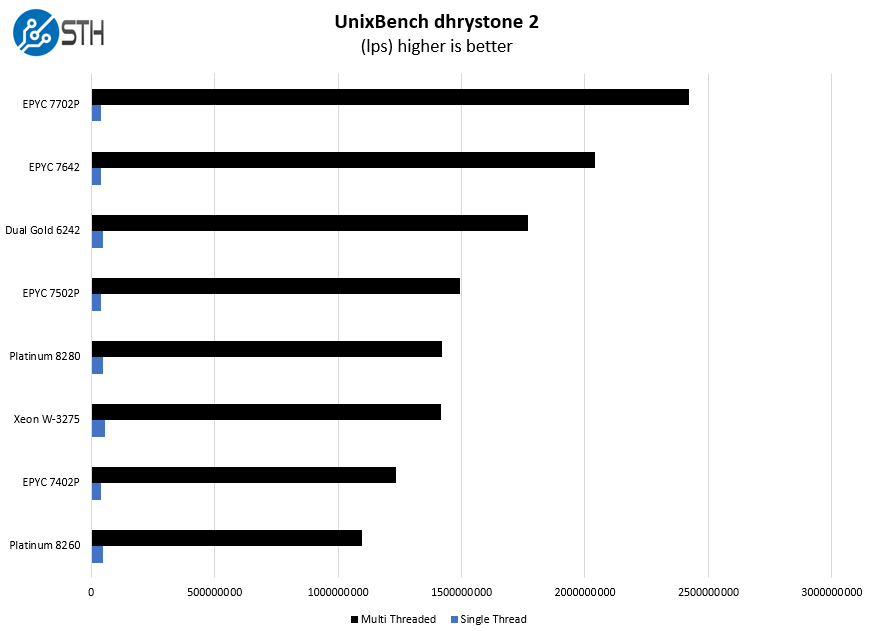
Here are the whetstone figures:
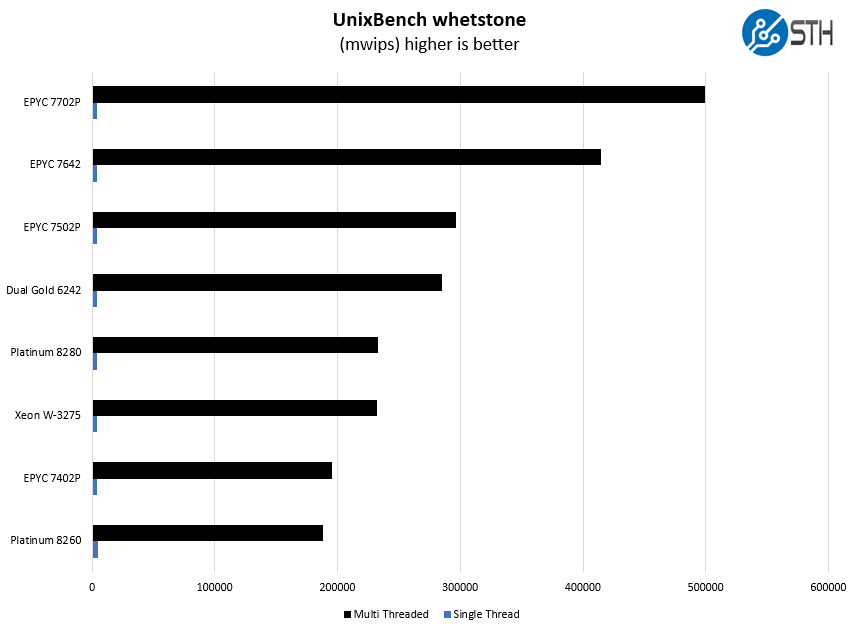
Here we wanted to call out the delta between this CPU and the AMD EPYC 7402P. For the incremental ~$1000, one gets eight additional cores. In the context of an entire system, we think this makes a lot of sense.
Chess Benchmarking
Chess is an interesting use case since it has almost unlimited complexity. Over the years, we have received a number of requests to bring back chess benchmarking. We have been profiling systems and are ready to start sharing results:
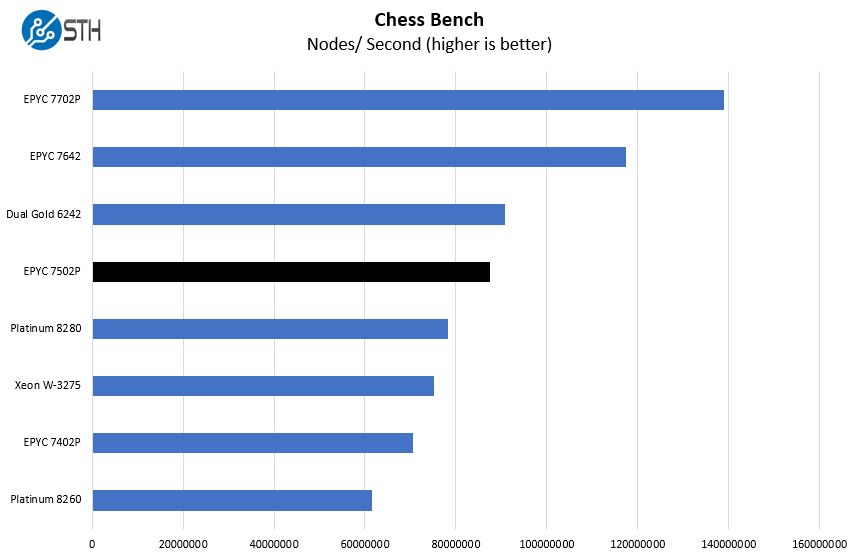
On the chess benchmarking side, we again see the AMD EPYC 7502P line up between the 28 core single-socket Intel Xeon parts and dual 16 core frequency optimized Xeon parts.
Next, we are going to look at market positioning before ending with our final words




That’s a cool cover photo. We’re going to look to quote these out v. Intel Xeon but even with the discounts we’re being positioned the 8260’s as competitive. Based on this, we’ll ask for an update
What motherboard gives pci 4 instead of pci 3 like the Supermicro I mostly use?
we went with the 7502 for a new vsphere cluster. superserver 1114s includes pci4 so we can test new mellanox 100g cards.
Hey dpf, where did you purchase you 1114’s from? We have one on order and it’s taking forever for it to get in.